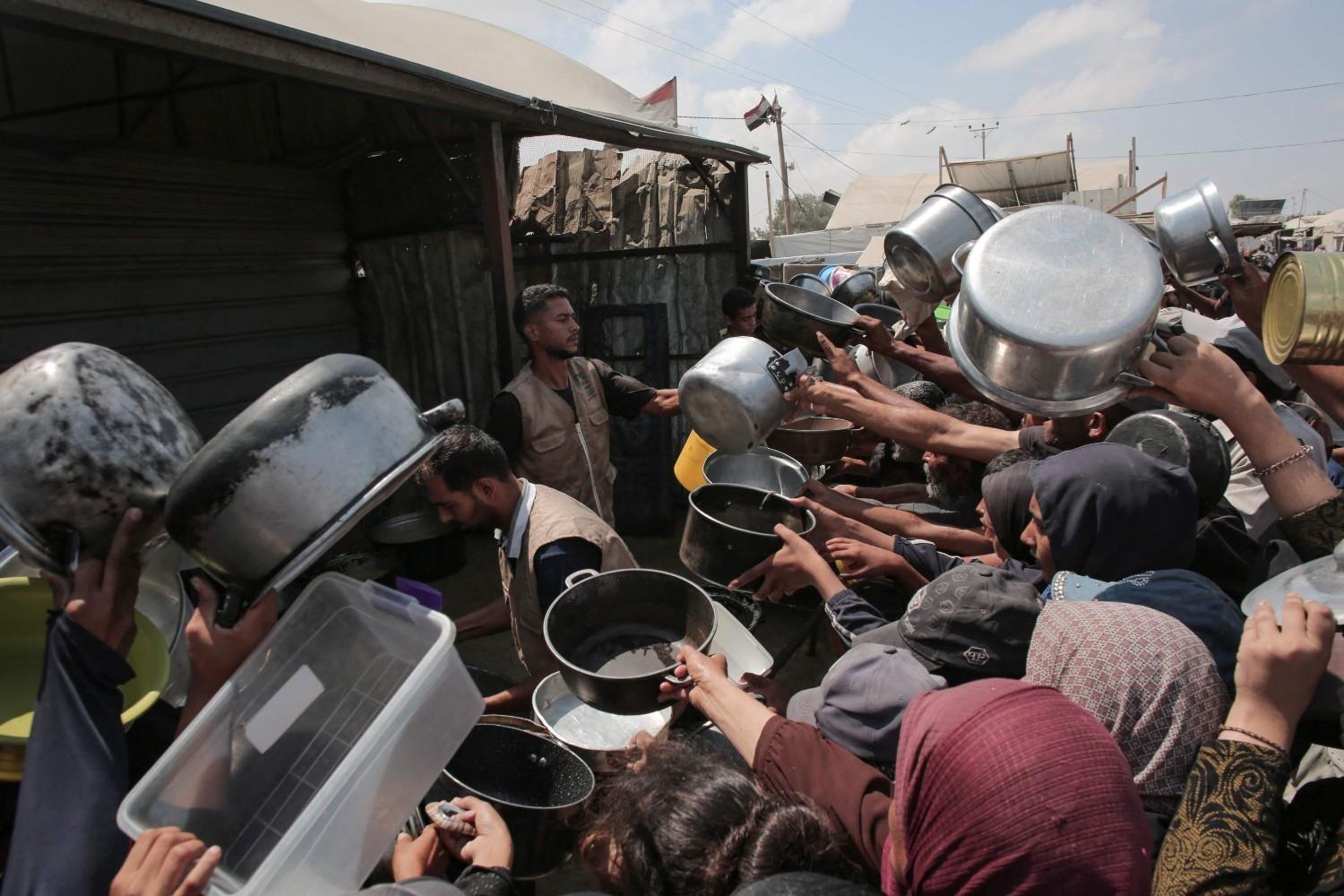
The United Nations on Aug. 22 officially declared a famine in Gaza, the first in the Middle East, with its experts saying 500,000 people were facing "catastrophic" hunger.
"As of Aug. 15 2025, famine [IPC Phase 5], with reasonable evidence, is confirmed in Gaza Governorate,” Gaza City, which covers about 20 percent of the Gaza Strip, the U.N.-backed the Integrated Food Security Phase Classification, or IPC, said in its latest update.
Famine is projected to expand to Deir el-Balah and Khan Younis governorates by the end of September, which would cover around two-thirds of the Palestinian territory.
"After 22 months of relentless conflict, over half 1 million people in the Gaza Strip are facing catastrophic conditions characterized by starvation, destitution and death," the report said.
This number, based on information gathered between July 1 and Aug. 15, is expected to increase to nearly 641,000 people, nearly a third of the population, by the end of September.
But Israel's Foreign Ministry immediately hit back, saying "there is no famine in Gaza.”
In a statement, it slammed the report by the Rome-based IPC panel, saying it was "based on Hamas lies laundered through organizations with vested interests.”
The IPC said this was the most severe deterioration in the situation since it began analyzing hunger in the Gaza Strip.
It said the change was driven by a sharp escalation in the war between Israel and Hamas and the resulting massive displacement of people, combined with the severe restriction of access to humanitarian and commercial supplies of food.
In early March, Israel completely banned aid supplies from Gaza, before allowing very limited quantities to enter at the end of May, leading to severe shortages of food, medicine and fuel.
Speaking in Geneva U.N. aid chief Tom Fletcher said that the famine was entirely preventable, saying food could not get through to the Palestinian territory "because of systematic obstruction by Israel.”
He said the famine should "haunt us all.”
U.N. rights chief Volker Türk also said, "It is a war crime to use starvation as a method of warfare,” minutes after famine was declared in the Gaza Strip.
Türk said the resulting deaths "may also amount to the war crime of wilful killing,” while U.N. Secretary-General Antonio Guterres said, "we cannot allow this situation to continue with impunity."
The IPC noted the local food system has also collapsed, with an estimated 98 percent of cropland in the Gaza Strip either damaged, inaccessible or both, livestock decimated and fishing banned.
To add to this, the health system has severely deteriorated, while access to safe drinking water and adequate hygiene has been drastically reduced.
The IPC is a coalition of monitors tasked by the U.N. to warn of impending crises.
Its definition of a famine has three elements.
Firstly, at least 20 percent of households, one in five, must have an extreme lack of food.
Second, at least 30 percent, one in three, children under five are acutely malnourished.
And third, at least two in every 10,000 people are dying every day because of outright starvation or because of malnutrition and disease.